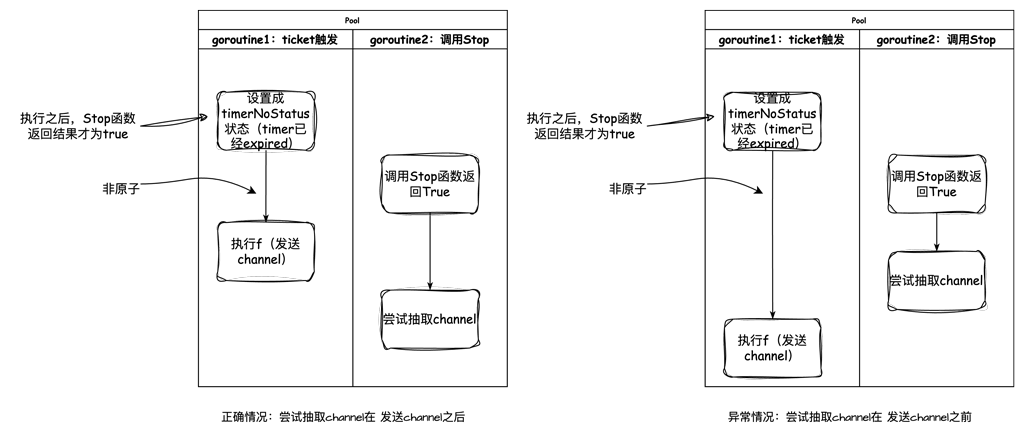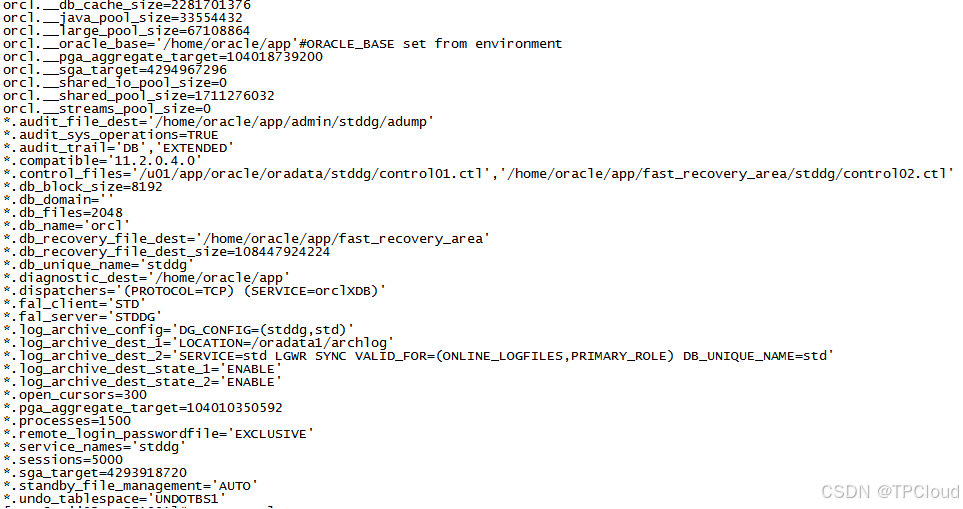golang1.23 之前 Reset ?到底有什么问题
在 golang 的 time.Reset 文档中有这么一句话,为了防止文档更新而导致内容变动,这里粘贴出来:
Before Go 1.23, the only safe way to use Reset was to [Stop] and explicitly drain the timer first. See the NewTimer documentation for more details. 在Go 1.23 之前,唯一安全使用Reset函数的方式是:在使用之前调用Stop函数并且明确的从timer的channel中抽取出东西。
虽然文档中已经告诉了正确使用的方式,但是实际上在真正的代码中无法达到这个要求,参考下方代码(来源代码来源):
|
1 2 3 4 5 6 7 8 9 10 11 12 13 14 15 16 17 18 19 20 21 22 23 24 25 26 27 28 29 30 31 |
//consumer go func() { // try to read from channel, block at most 5s. // if timeout, print time event and go on loop. // if read a message which is not the type we want(we want true, not false), // retry to read. timer := time.NewTimer(time.Second * 5) for { // timer may be not active, and fired if !timer.Stop() { select { case <-timer.C: //try to drain from the channel,尝试抽取,由于使用select,因此这里可以保证:不阻塞 + 一定抽取成功 default: } } timer.Reset(time.Second * 5) //重置定时器 select { case b := <-c: if b == false { fmt.Println(time.Now(), ":recv false. continue") continue } //we want true, not false fmt.Println(time.Now(), ":recv true. return") return case <-timer.C: fmt.Println(time.Now(), ":timer expired") continue } } }() |
在上面的代码中,我们按照文档的要求,在 timer.Reset ?之前已经调用了 Stop ?函数,且如果 Stop 成功(返回 true),还尝试抽取 timer,看起来似乎没问题的代码中仍然存在问题。
问题的关键在于:当 Ticket 触发的时候,设置定时器状态的操作和发送 channel 的操作并不是原子的,见 runOneTimer 函数。
异常情况:尝试抽取 channel 在 发送 channel 之前,这样会导致 Reset 之前并没有真正的清空 timer,后一次的 timer.C 还没到触发时间就异常的触发了!

golang1.23 之前到底应该如何正确的使用 Reset?
实际上简洁点就这么写,每次一个新的局部变量 Timer? 结构体没压力,非要复用使用 Reset 的可读性太差了,对维护者不友好,而且习惯了不好的写法,哪天一不小心就写出问题了~
|
1 2 3 4 5 6 7 8 9 10 11 12 13 14 15 16 17 |
go func() { for { func() { timer := time.NewTimer(time.Second * 2) defer timer.Stop()
select { case b := <-c: if !b { fmt.Println(time.Now(), "work...") } case <-timer.C: // BBB: normal receive from channel timeout event fmt.Println(time.Now(), "timeout") } }() } }() |
参考:
https://tonybai.com/2016/12/21/how-to-use-timer-reset-in-golang-correctly/
https://www.v2ex.com/t/794283


